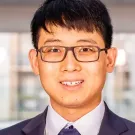Strategic Information Transmission Between Enemies (ENEMY)


Tangren Feng
Principal Investigator
Team members: Nenad Kos, Massimo Marinacci, Fabio Maccheroni
MUR PRIN 2022
September 2023 - February 2026
ABSTRACT:
Why are interest rates often excessively high on local lending markets in Third World countries? Why do people who want to buy a good used car turn to a dealer rather than a private seller? Why is it advantageous for insurance companies to offer clients a menu of contracts where higher deductibles can be exchanged for lower premiums? Asymmetric information is at the core of modern economic theory within which the answers to the above questions lie: agents on one side have much better information than those on the other side. Borrowers know more than the lender about their repayment prospects; the seller knows more than buyers about the quality of his car; and policyholders know more than the insurance company about their accident risk. Hence, it not surprising that an extremely vast and fruitful literature has focused on the problem of eliciting asymmetric information from different perspectives: strategic information transmission, contract theory, mechanism design, etc. However, in most existing models, although interests among privately informed agents may not be perfectly aligned, there typically is some common ground where everyone can be made better off with some information sharing. Indeed, this potential gain from information sharing for everyone is understood as a foundation for meaningful information elicitation. Intuitively, if sharing information would definitely harm the informed parties, then why would they truthfully reveal their information? A fundamental question rises naturally: is information transmission possible if the concerned parties are diametrically opposed in interests?
This proposal tries to tackle this grand question from several different perspectives with 3 projects:
1. Getting Information from Enemies;
2. Self-image and Information Transmission;
3. Application Markets
Other Research Units:
- Daniele Pennesi, Università degli Studi di Torino
Events: